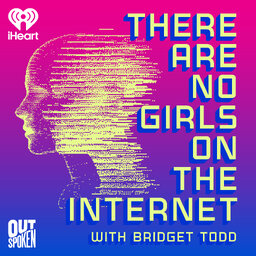DISINFORMED: Understanding Section 230 with Evan Greer
Musician and digital rights activist Evan Greer breaks down Section 230 and why she and other digital rights activists are fighting to preserve it.
Follow Evan: https://twitter.com/evan_greer
Listen to Evan’s rad new album Spotify is Surveillance: https://evangreer.bandcamp.com/album/spotify-is-surveillance
Learn more about Fight for the Future: https://www.fightforthefuture.org/
Listen to Carrie Goldberg’s episode of TANGOTI: https://podcasts.apple.com/us/podcast/there-are-no-girls-on-the-internet/id1520715907?i=1000489091000
VOTE FOR US FOR TO WIN A SHORTY AWARD: TANGOTI.COM/VOTE
Learn more about your ad-choices at https://www.iheartpodcastnetwork.com
In 1 playlist(s)
There Are No Girls on the Internet
Marginalized voices have always been at the forefront of the internet, yet our stories often go over…Social links
Follow podcast
Recent clips

Amazon Ring Super Bowl Ad BACKFIRES; YouTubers Exploit Women's Arrest Videos; Salesforce CEO ICE "Joke" – NEWS ROUNDUP!
1:10:54

University of Oklahoma Trans Instructor's Attorney Still in the Fight After Appeal Denied
47:18

Should You Trust Andrew Huberman? What CBS's Epstein Disaster Reveals About Wellness Gurus
1:32:51
 There Are No Girls on the Internet
There Are No Girls on the Internet